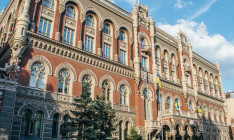Economy
legislationBusiness does not agree with the deputy option for resolving the situation in Crimea
Yesterday the parliament members of Ukraine failed to review the bill on economic activity on the temporarily occupied territory drafted by Serhiy Teryokhin, Ksenya Lyapina and Vitaliy Nemylostyviy (all three members of the Batkivshchyna party). The main reasons were the lack of time, a number of disputable issues and the fact that businesses are against adoption of the bill in its proposed format. The bill was registered in the parliament on June 6 and two weeks later on June 19 it was passed in its first reading on condition that the terms of drafting the document for its second reading are reduced. The table of amendments to the bill is 176 pages long with 276 proposals of deputies to change it (the publication has a copy of the bill at its disposal).
“I would not venture to say that business circles came to a consensus with members of the parliament on this issue. The examination of amendments that businesses are proposing is quite problematic and I do not think that the document should be adopted quickly – it would be better to discuss all issues,” believes Head of the Union of Tax Consultants Leonid Rubanenko.
Crimea will be free
The bill envisages creation of a free economic zone in Crimea in 10 years, the borders of which will not extend to the maritime economic zone of Ukraine. As of March 27, 2014, it is proposed that Crimea is recognized as a “temporarily occupied territory of Ukraine”.
The bill allows for the creation of techno-parks in the FEZ, but without financing from the national budget of Ukraine. One of the new proposals is the creation of the Management Company of Crimea by the joint decision involving the Supreme Council of Crimea and the Sevastopol City Council that over the term of operation of the FEZ cannot be incorporated or sold. It will be engaged in overseeing the fulfillment of the budget of the Crimean FEZ, confirming regional development programs and effectuating internal and external loans.
“The creation of the management company is a routine bureaucratic structure and a new field for corruption schemes. It is not clear how it can exist with Russian legislation taking effect as of January 1, 2015 and why it is needed, all the more on budget money,” says General Director of the Employers’ Federation of Ukraine (EFU) Ruslan Ilyichev.
All taxes, with the exception of local taxes, payments for land and profit taxes, will not be paid on the territory of the FEZ. Private individuals registered in Crimea shall be viewed as non-residents for the purposes of profit tax payment, while the collection of local taxes and payments for land will comply with the criminal code. The delivery of goods to and from Crimea and from and onto the territory of Ukraine is equated to export-import supplies.
Ongoing conflict
Experts that Capital posed questions to responded that they are categorically against the adoption of the bill in the form proposed by the MPs. First of all, Ukraine considers Crimea a temporarily occupied territory and feels that it is a part of Ukraine, said Ilyichev. “At the same time, according to the document not a single good produced in Crimea can be sold on the territory of Ukraine, nor can be exported to a third country as it is not acknowledged as Ukrainian. At the same time we do not deem it as a Russian product,” Ilyichev noted. In the expert’s opinion, the bill imposes a trade embargo on the economic activity of Crimea and, in essence, breaks the production chains between Crimean and Ukrainian companies.
Secondly, the bill proposes two options to Ukrainian owners of businesses in Crimea: withdraw or sell their assets. “How can one pull out a powerful industrial enterprise today?” A dry shipbuilding dock weighs 30,000 tons. How can you evacuate it?! How do you evacuate a chemical company or a cannery?! This is technology. These are objects of major construction. For many reasons, the withdrawal of industrial assets is not possible,” the expert assures.
In the event of forced sale the question “Sell to whom?” is quite relevant. The bill envisages that goods and assets produced in Crimea can be sold only on the peninsula or in Russia. Ilyichev says the EFU proposes to recognize Crimea as a free customs zone and offer companies that want to cooperate with Ukraine the status of economic agents. This will allow them to supply products to Ukraine and third countries through the territory of Ukraine under the control of the Ukrainian state. Noteworthy is that the amendments of deputies to the bill on this topic were rejected.
Rubanenko said the new legislation regarding Crimea should be passed to give companies the opportunity to fulfill the contracts they signed by the end of 2014 and resolve the problems associated with the origin of Crimean products. Seeing as the EU officially deemed the annexation of Crimea illegal and imposed an embargo on the delivery of products of Crimean enterprises, businesses face problems with the export of goods to Europe.

Ukraine's Rada demands prosecution of Crimean deputies
2 33988
Problems with the Internet. Subscribers will have to live without the worldwide web until the Crimean market is re-divided
59111
The mechanism proposed for registration of real estate in Crimea is a godsend and a gold mine for swindlers
74766









 of the agreement of syndication with Financial Times Limited are strictly prohibited. Use of materials which refers to France-Presse, Reuters, Interfax-Ukraine, Ukrainian News, UNIAN agencies is strictly prohibited. Materials marked
of the agreement of syndication with Financial Times Limited are strictly prohibited. Use of materials which refers to France-Presse, Reuters, Interfax-Ukraine, Ukrainian News, UNIAN agencies is strictly prohibited. Materials marked  are published as advertisements.
are published as advertisements.